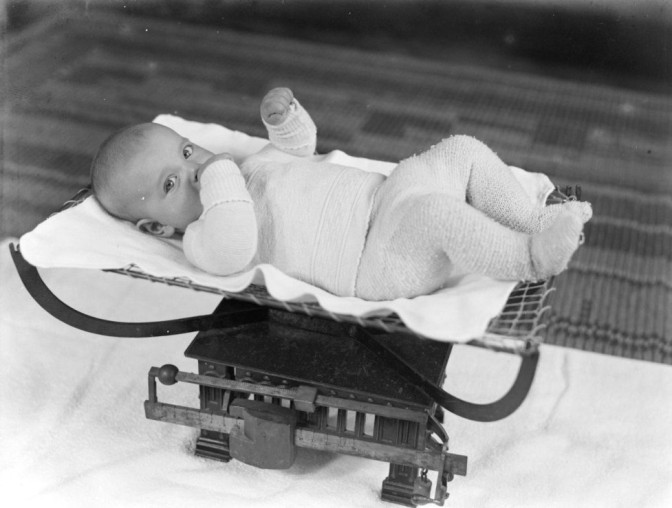In the Dutch language, the suffix ‘-je’ indicates a diminutive. Depending on the preceding word, it can be -je, -kje, -tje, -pje, or -etje; sometimes with an -n at the end. In Low Saxon dialects in the north-east of the Netherlands, -ke, -ske, -ken, -sken, or -chien are used.
The diminutive suffix is used for nouns and names. Many female names are diminutive forms of male names. The diminutive form of a name is also used for a young child, so studying the name in context is necessary to interpret it correctly. Some female names that have no male equivalent (“Maria”) can take a diminutive to create a variation or call name, often used for a younger child.
Examples of female names with a diminutive are: Jannetje, Jenneken, Harmpje, Hendrickjen, Derksken, Marietje, and Lammechien.

Baby on a scale. Credits: Nationaal Archief (Willem van de Poll)

